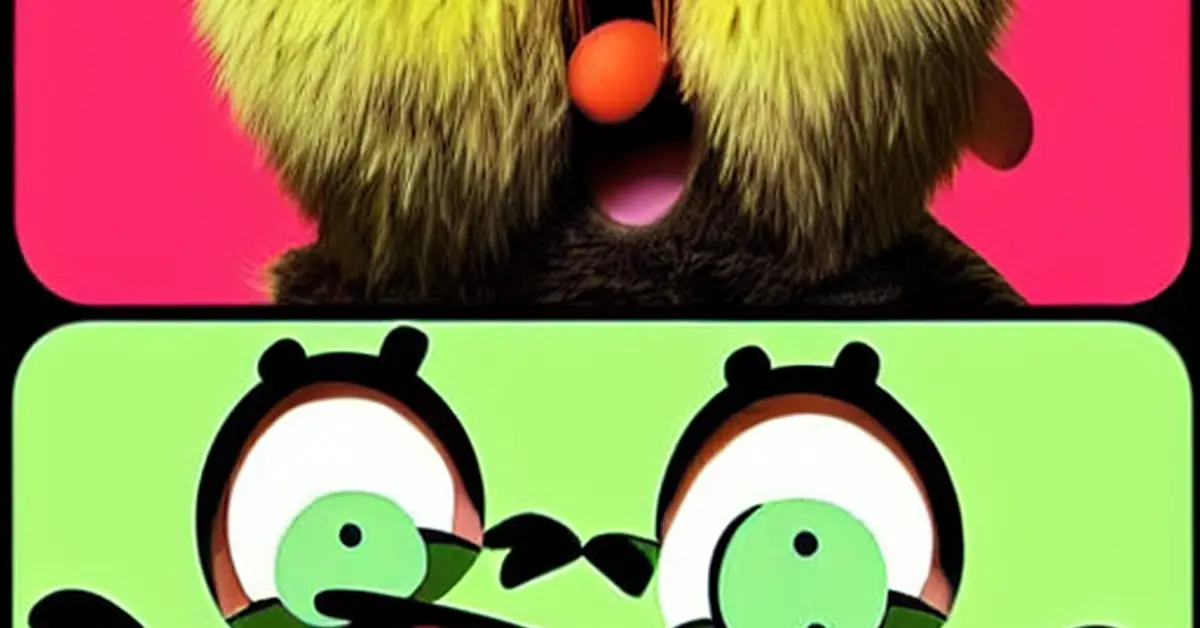The Hilarious World of Misheard Lyrics: "I Used to Tickle My Pickle" and Beyond
This blog post delves into the fascinating and often humorous phenomenon of misheard lyrics, specifically exploring the widely circulated misinterpretation of a phrase frequently associated with children's songs and the popular game, Angry Birds. We'll examine why these mishearings occur, the cultural impact they have, and the enduring amusement they provide. Prepare to be tickled… possibly not by a pickle, but certainly by the absurdity of it all.
The Psychology of Mishearing: Why Our Brains Play Tricks on Us
Mishearing song lyrics is a surprisingly common experience, affecting people of all ages and musical tastes. It's a testament to the complex interplay between our auditory perception and cognitive processing. Our brains are remarkable pattern-matching machines, constantly striving to make sense of the world around us. When it comes to auditory input, this often means filling in gaps, making assumptions, and interpreting sounds based on context and pre-existing knowledge. This process, while generally helpful in understanding speech, can lead to amusing, and sometimes wildly inaccurate, interpretations of song lyrics.
Several factors contribute to this phenomenon:
- Phonetic Similarity: Often, the actual lyrics contain sounds that are phonetically similar to the misheard version. The subtle differences in pronunciation, especially in fast-paced songs or those with unclear enunciation, can be easily misinterpreted by the listener's brain, which then substitutes the similar-sounding phrase. This is especially true with children's songs, where pronunciation may be less precise.
- Contextual Bias: The surrounding words and the overall context of the song can heavily influence our interpretation. If the song's theme is playful or nonsensical, our brain might be more likely to accept a similarly nonsensical mishearing as plausible. The visual component, such as watching a cartoon or playing a game like Angry Birds alongside the music, can further solidify the misheard lyric in our memory.
- Memory Consolidation and Bias: Once we've misheard a lyric and integrated it into our memory, it becomes remarkably difficult to correct. This is due to a phenomenon known as memory consolidation, where our brains actively reinforce and strengthen established neural pathways. The incorrect lyric, having already been processed and stored, becomes deeply ingrained, effectively resisting any later attempts at correction. The power of suggestion also plays a role; if someone else repeats the misheard lyric, it reinforces its credibility in our minds.
- Background Noise and Auditory Distortion: Environmental factors like background noise, poor audio quality, or even the listener's own hearing impairments can significantly affect the accuracy of lyrical interpretation. These factors can introduce distortion or obscure certain sounds, increasing the likelihood of mishearing.
The Infamous "I Used to Tickle My Pickle": A Case Study in Misinterpretation
The phrase "I used to tickle my pickle" stands as a prime example of a widespread and enduring misheard lyric. Its enduring popularity is a testament to the humor and memorability of these misinterpretations. While the actual lyrics vary depending on the source song, the similar-sounding nature of the misheard phrase allows it to be easily substituted across different musical contexts. The unexpected, and often absurd, nature of the phrase adds another layer of comedic appeal.
The inherent ambiguity of the phrase is part of its charm. The word "pickle," while seemingly straightforward, holds a multitude of potential interpretations, from the literal (a preserved cucumber) to the metaphorical (an informal reference to something else entirely). This ambiguity allows the phrase to take on a playful and even risqué connotation, depending on the listener's interpretation. The childlike simplicity of the sentence structure further enhances this sense of absurdity, making the phrase memorable and easily shared.
The association of this phrase with Angry Birds, a game known for its playful sound design and cartoonish violence, seems entirely fitting. The juxtaposition of the seemingly innocent phrase with the game's overall tone creates a humorous and somewhat surreal effect, reinforcing the memorable and easily spread nature of the misheard lyric.
Tracing the Origins (or Lack Thereof): The Elusive Source Song
Pinpointing the original source of the "I used to tickle my pickle" mishearing is surprisingly difficult. Unlike some misheard lyrics that can be definitively traced back to a specific song, this particular phrase seems to exist as a sort of meme, a self-replicating unit of cultural transmission. It's likely that the phrase originated from a combination of factors: similar-sounding words in multiple children's songs or nursery rhymes, combined with the power of word-of-mouth and online sharing, which allowed the phrase to spread and solidify in the public consciousness.
This lack of a definitive origin only adds to the phrase's mystique and its enduring appeal. It becomes a collective mishearing, a shared experience that transcends any single source. This shared experience solidifies the misheard lyric's position in pop culture.
The Enduring Power of Misheard Lyrics in Popular Culture
Misheard lyrics, far from being mere mistakes, have become a significant part of popular culture. They are a source of amusement, shared experiences, and even creative inspiration. The playful nature of these misinterpretations often leads to new jokes, memes, and even artistic creations. The fact that these mishearings are so widely shared points to a fundamental human tendency to find humor in the unexpected and the absurd.
The longevity of the "I used to tickle my pickle" phrase exemplifies this phenomenon. The phrase's persistence in online forums, social media, and even casual conversation is a clear indication of its cultural significance. It's become a shorthand for playful misunderstanding and shared amusement, a cultural touchstone that connects people across generations and backgrounds.
Moreover, the humor derived from these mishearings often lies in the incongruity between the misheard lyrics and their actual meaning. The innocent and playful surface of "I used to tickle my pickle" contrasts sharply with the unintended interpretations that can be read into it. This contrast is a key ingredient of the comedic effect, making the phrase inherently funny and shareable.
Conclusion: The Laughter and Legacy of Linguistic Slip-Ups
The seemingly simple act of mishearing song lyrics reveals a great deal about how our brains process information, how we construct meaning, and how culture shapes our shared experiences. The "I used to tickle my pickle" phenomenon, while seemingly trivial, showcases the power of misinterpretation to create enduring and widely shared cultural moments. These instances of mishearing are not mere errors but are powerful illustrations of the playful and unpredictable nature of language itself, and the humour and creativity that can arise from linguistic slips and playful misunderstandings.
The enduring popularity of this misheard lyric, and countless others, underlines the vital role of humor and shared experiences in shaping our cultural landscape. It reminds us that even seemingly insignificant mistakes can hold significant cultural weight, becoming sources of amusement, connection, and ultimately, a richer, more enjoyable understanding of the world around us.




